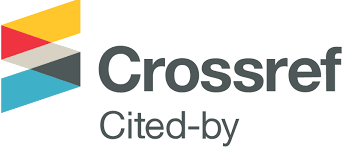Welcome to the June 2024 issue of the Journal of Sustainable Marketing (JSM)I In this editorial, I would like to share important information about JSM’s progress toward becoming a leading source of sustainable marketing theory, research, and managerial application.
First, I am pleased to note that we now have a team of highly expert and well-recognized Associate Editors: Dr. Elif Karaosmanoglu, Istanbul Technical University; Dr. Gergana Nenkov, Boston College; Dr. Karolos A. Papadas, University of York; Dr. Rafael Currás Pérez, University of Valencia; Dr. Preeti Shroff-Mehta, Northwestern University; and Dr. Rodoula Tsiotsou, University of Macedonia. We are indeed fortunate to have such a diverse and dedicated group of sustainable marketing scholars who work closely with reviewers and me to ensure that our authors receive helpful and fair reviews that will increase the value of their submission's contribution and increase the probability of publication. Thank you all!
Second, incredible levels of support from our publisher, Luminous Insights, and our Managing Editor, Dr. Ahmad Aljarah, have played a major role in the fact that manuscripts submitted for publication consideration have continued to grow as have the number of published paper downloads from our journal’s open access website (https://luminousinsights.net/journals/jsm). For example, the number of manuscripts submitted for publication increased in 2023 from 2021 by more than 360%, and the number of articles downloaded in 2023 increased by over 200% compared to 2022.
Third, the Journal of Sustainable Marketing has recently achieved a major milestone by joining the high- quality group of academic journals indexed in the Scopus database. AsResearcher.Life (2024) notes:
Journals that are part of the Scopus database are referred to as Scopus-indexed journals. It is a valuable tool for institutions and libraries to assess the quality and impact of journals in their collections. Being indexed in Scopus is an indicator of a journal's quality and impact on the academic community. Researchers often seek to publish their work in Scopus-indexed journals because it can enhance both the visibility and credibility of their research, as well as boost academic and career advancement.
Researcher Life
JSM is very proud to join the Scopus index as we know this will increase the visibility and impact of our published papers’ innovative and valuable insights to the sustainable marketing field. Many thanks to our Managing Editor and publisher for their steadfast support in helping to secure acceptance of JSM as a Scopus-indexed journal!
Fourth, in May 2025, the Journal of Sustainable Marketing is sponsoring the second Research Innovations in Sustainable Marketing Symposium (RISM2025). Organized in collaboration with the European Marketing Academy’s Annual Conference hosted by ESIC University in Madrid, Spain, RISM2025 will be held on Tuesday, May 27, 2025, as a pre-EMAC Conference symposium from 13:00-17:30 (CET).
Fifth, I want to thank our team of expert reviewers who consistently provide positive and insightful recommendations to JSM authors that significantly strengthen the papers published in the journal. Without their commitment and dedication, achieving JSM’s mission of enhancing sustainable marketing theory and application would not be possible.
Last, I would like to share the following set of definitions that were recently compiled by leading sustainable marketing scholars, such as Dr. Karen Page Winterich, Dr. Neeraj Bharadwaj, and Dr. Bryan Bollinger. With their input, the Marketing Accountability Standards Board (Marketing Accountability Standards Board, 2024) has established the following definitions that apply to the field of sustainable marketing:
Sustainable marketing aims to recognize and address negative environmental and societal externalities while enhancing the positive environmental, international development, and societal benefits of the production, distribution, promotion, packaging, and pricing of an organization’s offerings. An example of sustainable marketing is a company adopting a reduced packaging strategy across all its products.
Sustainable marketing is broader than sustainability marketing as it encompasses systems and strategies rather than just communication of specific sustainable claims by a single entity.
I recommend that authors who submit manuscripts for publication consideration by JSM follow these definitions, which reflect the journal’s title as well as the American Marketing Association’s Sustainable Marketing and Innovations Special Interest Group (SUSTSIG).
At the same time, however, it is important to acknowledge that the term "transformative sustainability marketing" has been used in the academic marketing literature. A recent JSM commentary by Waddock (2023) refers to "transformative sustainability marketing." However, Waddock also refers to sustainable marketing in several places, e.g., “It is from this systemic perspective and with understanding of its implications, however, that ‘sustainable’ marketing arises and will be implemented (Waddock, 2023, p. 179) and “Along these lines, core dimensions of sustainable marketing that need to be assessed or measured are building strong relations with customers/clients, nature, and the social environment, aligned with ecologically-oriented, feasible, and ethical customer solutions following a ‘triple responsibility’ orientation—incorporating economic, environmental, and social elements” (Waddock, 2023, p. 182).
In sum, while I support references to sustainability marketing in JSM submissions when referring to the “marketing of sustainability” as noted by the Marketing Accountability Standards Board (2024) or when citing peer reviewed, published authors who have applied the label in a specific context, I recommend use of the broader term, sustainable marketing, in all other instances that reflect topics of interest in the field as noted in our journal’s “Aims and Scope.”
As always, we welcome your feedback and questions about possible manuscript submissions, including conceptual, empirical (qualitative and quantitative), case studies, and managerial insights. In addition, please note that our special issue, “Fashion and (Un) Sustainable Behavior,” with Drs. Lisa McNeill and Judith Lynne Zaichowsky serving as Guest Editors, has a submission deadline of December 1, 2024. Interested authors will find information about the special issue on the JSM website.







